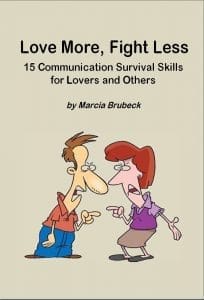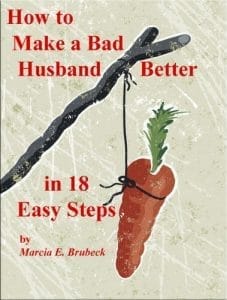Relationship Choices You Will Regret
What will happen if I flirt with this gal or guy? Could the nerd who winked at me online be The One? Should I give this chick another chance on a second date? How fast is too fast to hop into bed or move in together? Everyone wants to love and feel loved by someone, and we all worry about our choices.
Timing and readiness are everything. Sometimes we miss opportunities to build our connection with others. Later we look back with regret. Here are some of the choices people make that lead romantic relationships astray.
Pretending to be someone you’re not
Maybe you’re pretending to be keen on stock car racing. Or you come to every date armed with promises. Perhaps you want the person you are wooing to think you have money or expertise you actually lack.
Acting as if you’re someone other than yourself will keep you feeling uneasy. How will the other person react when your true personality emerges, as it certainly will over time?
If you are looking, as you should be, for someone who likes him- or herself, you need to accept yourself as well. Stay true to your values.
Pursuing someone solely on the basis of looks
Most of us notice chemistry when we first meet a romantic prospect. We may attribute the first heady surge of interest to fate, but the culprit is more likely lust, which is quick to evaporate in love affairs.
Over time, looks change. That cute guy or gal with the peachy skin will get wrinkles and a double chin down the road. Don’t pick a mate just because of physical appearance.
Sure, you want to like what you see, but don’t miss the beauty that is more than skin deep—beauty that, over time, can help you appreciate the patina of wear.
Thinking you can change the other person
If you start dating someone thinking, “This person would be perfect if only . . . ,” and then move to fix him or her, you are sabotaging your relationship. Focus instead on listening, learning, understanding his or her outlook and aspirations, and accepting what you find.
We can all change only ourselves. People whose happiness depends on their ability to manage others are doomed to frustration.
Rushing into things
It’s important to let knowledge of the other person develop gradually. Beware of anyone who wants to give you the moon on a second date.
If the relationship is important to both of you, go slow. If you want someone to marry or live with, what’s the rush?
The early stages of love are the stuff of memories down the line. You will both want to remember them, so savor them now.
People whose impulses urge them forward to rash commitments before the time is ripe are usually people who can’t commit when the right moment arrives. Often they are afraid of being alone because they haven’t learned how to take care of themselves in ways that only they can.
Giving away too much too soon
Resist the impulse to shower the other person with gifts every time you meet. If you do, you may be sending the message that you don’t think your friendship by itself is worth much—that you need to add bonuses to boost its value.
By the same token, avoid burdening a brand new relationship with your deepest, darkest secrets. Hold those for a later date. Trust develops bit by bit as you learn what you can expect from each other.
Selling yourself and your priorities short
The best way to a successful relationship with someone else is honesty and clarity about what you are looking for. Be up front with others about your goals and your priorities.
Seek out like-minded people. You want someone who shares your values. Support each other as you each pursue your goals.
Micromanaging everything
The urge to seize control is the antidote to anxiety.
I am not speaking of pathology here. All humans need to feel they exert some control over their circumstances.
Still, if you micromanage everything rather than sitting back some of the time and just letting life happen, you’ll find yourself in a constant power struggle with other people. This statement applies not only to your romantic relationships but also to life in general.
Expecting perfection
Mistakes prepare you for greater success by letting you profit from your failures. In social interactions, mistakes allow people to learn more about each other, renew their commitment to building their relationship, and show respect for each other by agreeing to handle problems differently.
When you and your dearly beloved fight about something, you have a precious opportunity to understand what went wrong and figure out how to avoid the same issue in the future.
Sooner or later people who care about each other hurt each other. By acknowledging the mistakes, you can learn from them, together and individually. As you resolve your differences and move forward, you will find yourselves closer than you were before you quarreled.
Judging the other person
Your best policy when it comes to interacting with someone else will always be empathy, the ability to put yourself in that person’s shoes.
Empathy means that you focus on feelings rather than on determining who is right or wrong or what is bad or good—labels that plug human foibles into all-or-nothing categories. Keeping other people in the dark about your emotions is a mistake. Share your feelings, and ask about theirs.
Don’t tell other people what they are like or what’s wrong with them or their behavior. If you can avoid judging other people, your love relationships and your friendships will blossom.
Not knowing (or asking for) what you want
For better or worse, you must know yourself in order to identify your personal Holy Grail. Once you understand your own wants and needs, get comfortable letting others know what they are.
Don’t feel embarrassed about asking for things. You stand a much better chance of getting what you want if you say what that is.
All of us must take care of ourselves. No one is a mind reader. It’s a relief when people are up front about what they welcome from others. Then there’s no need for guesswork.
♥
What do you think are the biggest relationship choices people regret? As always, I’d love to hear your thoughts.
©2020 Marcia Brubeck. All rights reserved.









